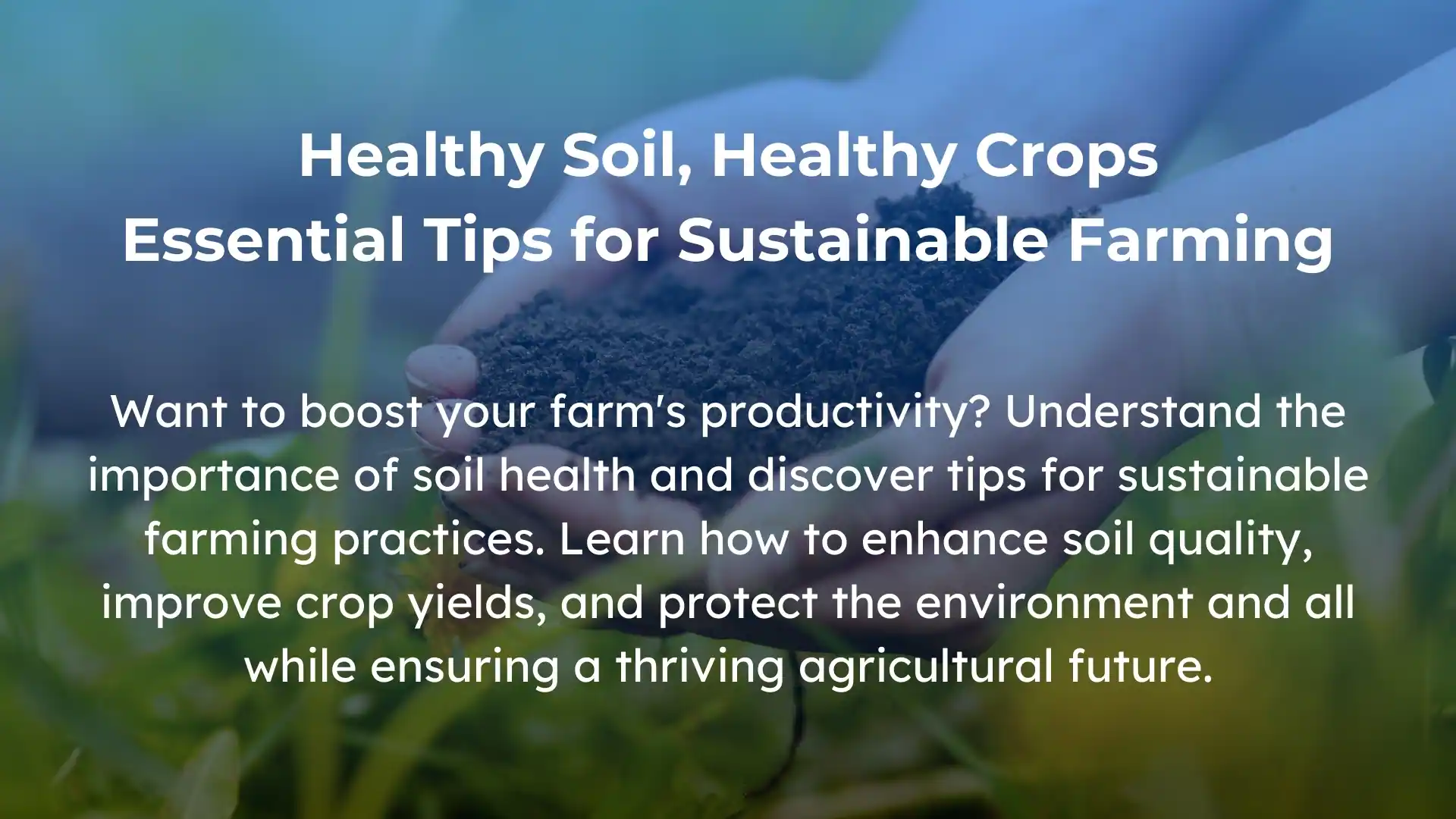Introduction
Soil health is the basis of practical agriculture, particularly in Pakistan, where farming is a profession of millions. Healthy soil helps crop productivity, improves water holding, and promotes agricultural sustainability. However, many Pakistani farmers need help with declining soil conditions.
The Importance of Soil Health in Pakistan
Healthy soil plays a vital role in crop yields, water control, and the overall sustainability of farming techniques. Maintaining healthy soil is critical to improve crop productivity.
Many farmers in Pakistan struggle with poor soil health due to erosion and nutrient depletion issues, lower crop yields and cause farmers to lose out.
Key Indicators of Healthy Soil
It is crucial to have a deep understanding of healthy soil, which involves critical factors such as soil structure, organic matter content, nutrient availability, and microbial activity to maintain and enhance its overall health.
- Soil Structure: Well-structured soil has good aeration and drainage, which helps root growth and improves plant health.
- Organic Matter Content: Compost and decomposed plant material are valuable sources of soil nutrients, helping to increase moisture retention and support healthy plant growth.
- Nutrient Availability: Healthy soil provides nutrients such as nitrogen, phosphorus, and potassium, essential for plant growth.
- Microbial Activity: A successful number of soil microorganisms contributes to the nutrient cycle and soil fertility.
Farmers can check soil health through simple tests or experienced research. Soil tests can reveal nutrient levels, pH balance, and other critical factors affecting soil health.
Organic Farming Practices for Soil Health Improvement
Organic farming methods are instrumental in improving soil health. Techniques like crop rotation, cover cropping, composting, and vermicomposting help to build and maintain soil fertility.
- Crop Cycle: Crop cycle prevents critical nutrient deficit and decreases pests and disease buildup.
- Cover Cropping: Planting shelter crops such as grasses or legumes during the off-season helps control soil erosion and adds fertility to the soil.
- Composting: Adding humus to the soil improves its structure, nutrient content, and water-holding capacity.
- Vermi-Composting: Using earthworms to decompose organic waste creates nutrient-rich vermicompost that benefits soil health.
Successful organic farming practices have been executed in different regions of Pakistan, improving soil quality and increasing crop yields.
Using Cover Crops to Enhance Soil Fertility
Cover crops boost soil fertility by preventing erosion, thus promoting biodiversity and adding organic matter to the soil.
In Pakistan, farmers can choose from a range of cover crops suitable for other regions. Legumes like lentils and chickpeas can fix nitrogen in the soil, while grasses such as rye or barley can help control erosion.
Managing Soil Erosion and Water Conservation
Soil erosion is a critical problem in Pakistan. It causes loss of topsoil and lower agricultural productivity. Deforestation, overgrazing, and improper land management contribute to erosion.
To fight soil erosion and save water, farmers can adopt several modes:
- Contour Farming: Ploughing along the contour of the land helps to reduce water runoff and prevent soil erosion.
- Terracing: Creating terraces on slopes can slow water flow and reduce erosion.
- Tree Planting: Planting trees along the edges of fields can act as windbreaks and minimise soil erosion.
These methods help maintain soil health and conserve water resources, essential for sustainable agriculture.
The Role of Livestock in Soil Health
Livestock can benefit soil health through grazing and manure control. Properly controlled grazing can improve soil structure and promote plant growth, and manure adds valuable nutrients to the soil, improving soil fertility.
Government Initiatives and Support for Soil Health
The Pakistani government has implemented different programs and approaches to promote soil health. These programs include support for organic farming inputs, training programs for farmers, and research projects focused on soil conservation.
Educating farmers about the different soil types is crucial to maintaining soil health. Well-organised training programs can effectively achieve this. At Al Arz, we offer guidance on best practices for soil control and help farmers access resources and funding.
Conclusion
In summary, soil health is essential to sustainable agriculture in Pakistan. By understanding critical indicators of healthy soil, adopting organic farming practices, managing cover crops, and addressing soil erosion, farmers can enhance soil fertility and gain greater agricultural sustainability. Al Arz can help you improve your soil health. Our expert team can provide customized advice and support to help you implement sustainable farming practices. Discover how Al Arz’s expertise can empower your sustainable farming journey. Learn More.
FAQ’s
What is the most crucial factor in maintaining soil health?
Healthy soil starts with proper nutrient management and organic matter.
How can cover crops improve my soil?
Cover crops boost soil fertility and prevent erosion, making soil more productive.
What are some signs of unhealthy soil?
Poor crop growth and erosion are critical indicators of unhealthy soil.
How does livestock benefit soil health?
Livestock can enhance soil structure and nutrient content through managed grazing.
What government programs support soil health in Pakistan?
The government offers subsidies and training for better soil management practices.









